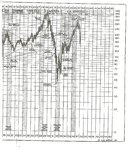TakeYourProfits
Member
- Messages
- 51
- Likes
- 0
For those not in the know. My opinion is that Wall St exists for much the same reason as a casino and makes money in much the same way. Investors of all types put money in and Wall St skims itself a fee/spread each time they do that.
Now I'd like to focus on derivatives, especially those commodity based derivatives. Is there actually a reason for their existence ? Are they not just another means to suck money out of an economy that doesn't need derivatives in the first place ?
The story goes that derivatives help buyers and sellers guarantee prices and avoid the pitfalls of price volatility. The questions you have to ask is
1) does this work ?
2) Are prices less volatile with commodity derivatives than without them ?
Of course, the exchanges benefit from volatility. Volatility entices people to trade and incurs fees. Not only that but there are literally billions of dollars in margin kept in escrow by the exchanges on which they earn interest. From the exchanges point of view, it makes a lot of sense to have derivatives and for those derivatives to be volatile. Does it really make sense for the rest of us ? Isn't hedging just a Wall St invention that tells us we are being wise to pay more fees & lose money to mitigate risk ?
What about from a corn buyers point of view ? He can buy a corn contract and when it goes down, he can pat himself on the back that although he didn't need the derivative, he did in fact insure himself against rising prices. Somehow he's been convinced that losing money on derivatives is good for business. The thing is, would the prices have been that unstable anyway - or are the derivatives markets and the speculation it attracts causing the volatility ? Oil anyone ?
There are even derivatives on - call minutes used, the weather (degree day indices), clean air days etc. is this anything but pure gambling on the weather ? What purpose really is the S&P500 futures ?
Don't even get me started on Cap and Trade...
So - do derivatives serve a purpose ? I don't mean their stated purpose, I mean do they actually do what they say they do ?
And the big question "What does this have to do with the price of onions ?"
I personally am glad that the exchanges can charge a fee for the services they provide to me that allow me trade in each one of those markets. i think it is good when a business, such as an exchange, can earn the opportunity to make some money. The markets merely serve the function of providing multiple opportunities to make money for as many market participants as possible that DECIDE to participate. Nothing More.
With that said, not every opportunity is an opportunity to earn money... as everyone trading the markets today can tell you, the markets also provide opportunities to "Learn" from... many of those so called "Learning Opportunities"... nonetheless they are absolutely necessary as well... how can you learn if you dont screw up?
The learning takes the shape of punishment; you can constantly put your money at risk taking erratic trades based on no specific format that should based in objectivity, wondering about things like Why the market exists in the first place and who actually benefits from the market, and why the exchanges charge a bid/ask spread in the first place, and all of the "pinstripes" the market displays to throw you off balance and to take you out of your own game to force you to trade the market on its terms instead of yours...
or, you can just accept that the markets are nothing more than a data feed of NEUTRAL information that can be used by anyone savvy enough to trade each and everyone one of those markets on their own terms... meaning they only take the trades that are good opportunities to profits from; trades based in objective & mathematical principles that are qualified, quantified, & executed in a disciplined and consistent fashion & without hesitation...
the only questions that any trader should concern himself with are the WHAT to buy or sell & the WHEN to buy or sell, of the trading opportunity...
a gentleman by the name of HM Gartley discussed this concept in his 1935 book called Profits in the Stock Market. It's on Page 2 right hand side of the page and it starts at about the 3rd paragraph down from the top... you should check it, great book... actually, here is the link to amazon so you can buy the book for yourself: TradeSocial Network ProTrader Library & Bookstore
as far as the rest of the questions you ask, they just seem like a lot of distraction designed to get you to pay the Bid/Ask spread over and over... none of us like doing that... right?
Each one of those markets is nothing more than a data feed of neutral information... all you have to decide is what & when... the rest doesnt matter... the job of the trader is to make money, not to understand why the cme group raised their margin requirements, or whatever... if they do, then you just adjust your system of answering the what & when accordingly & capitalize your account so you can trade according to the new rules... thats it...
unless you want to be a finance reporter/journalist on cnbc, then all of those questions are important... you have to provide answers to the public in that role, so it would be your job to discover all of that 'intelligence'... i have no interest in that job...


